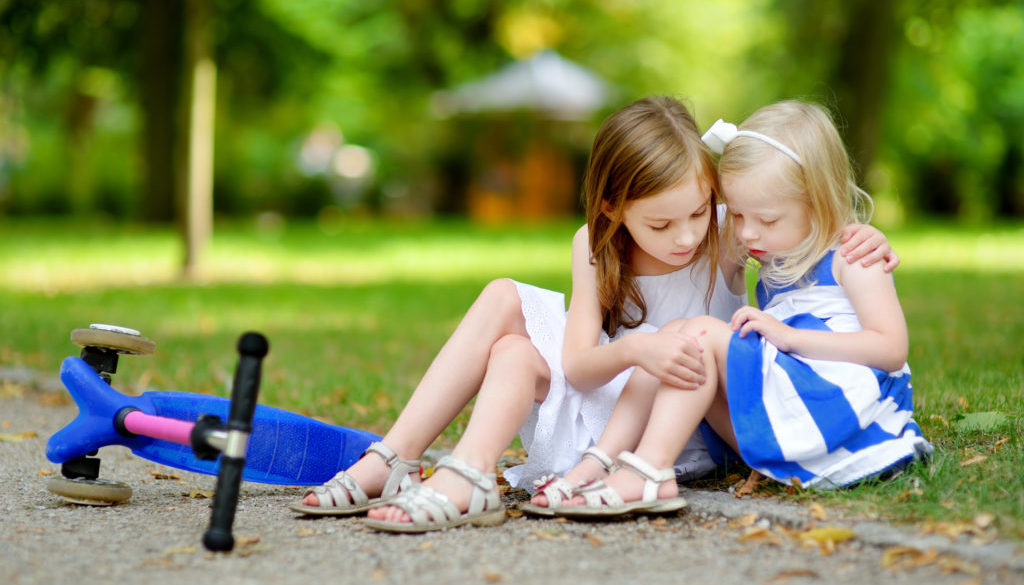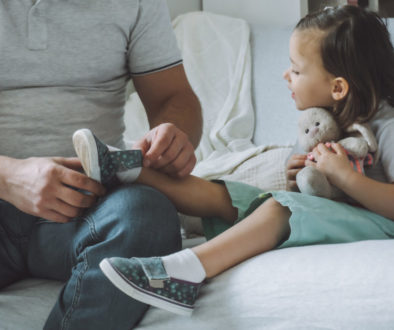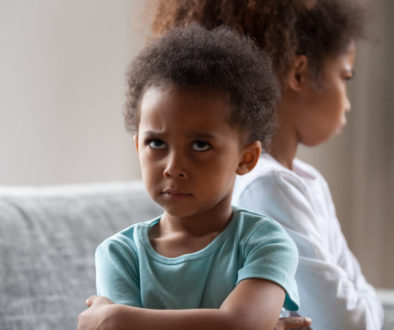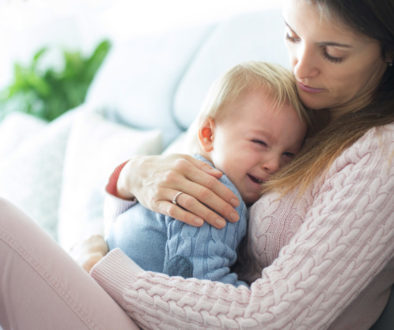When Your Child Hurts Another

All parents want their children to show remorse and concern for others when an incident occurs. How does empathy grow? Does forcing an apology help to raise an empathetic child? Where should the motivation to feel sorrow, remorse, or concern for possible injury come from? Check out these 6 simple steps on how to respond when your child hurts another:
- Focus on the hurt child first: Go to the hurt child first and focus the attention on caring for them and making sure they are ok.
“Oh no, you got knocked over, are you ok? Are you hurt anywhere on your body?”
- Model empathy with your actions and words: As you comfort the other child and make sure they are ok; your child will likely be observing your behavior as you model care and empathy for others who are in need.
“I’m so sorry you were knocked down, that must’ve been a big surprise.”
- Talk to your child about how the other child was affected: Once the other child has been cared for and soothed, talk to your child about the incident and how their actions impacted another.
“You were running and knocked your friend over; he was crying because that scared him.”
- Ask your child for ideas to help make amends with the hurt child: Depending on the age of your child, they may need some help coming up with ideas on ways that they can help.
“Do you think your friend would like to play with this toy? How can we support him in feeling better, maybe they need a drink of water?”
- Help carry out the plan: Because the idea came from within her (intrinsic motivation) she gains the hands-on experience of true empathy. This experiential learning will eventually build empathy that becomes a part of her lifelong character.
- Find opportunities to talk about it later: Once the situation has past and emotions have cooled, find a way to talk about how the situation could be avoided next time.
“I was thinking about how you helped that little guy at the park this morning after you knocked him down. I wonder how we can try to keep that from happening again. Do you have any ideas?”
Children do not develop the ability to understand that other people have thoughts and feelings different from their own until around 4-5 years of age. Young children’s brains are wired to believe that the world revolves around them (in many cases, it does!). During the toddler years, kids need adults to help them learn how to respond in social situations because they don’t yet understand that other people may feel differently than they do.
Remember that teaching a child when to apologize and how to make amends is a gradual process. Insisting that your child apologize can easily become a power struggle, instead, consider the age and stage of your little one and have faith that with a little patience and time, they will learn to take responsibility for their mistakes, show remorse, and make authentic apologies.





